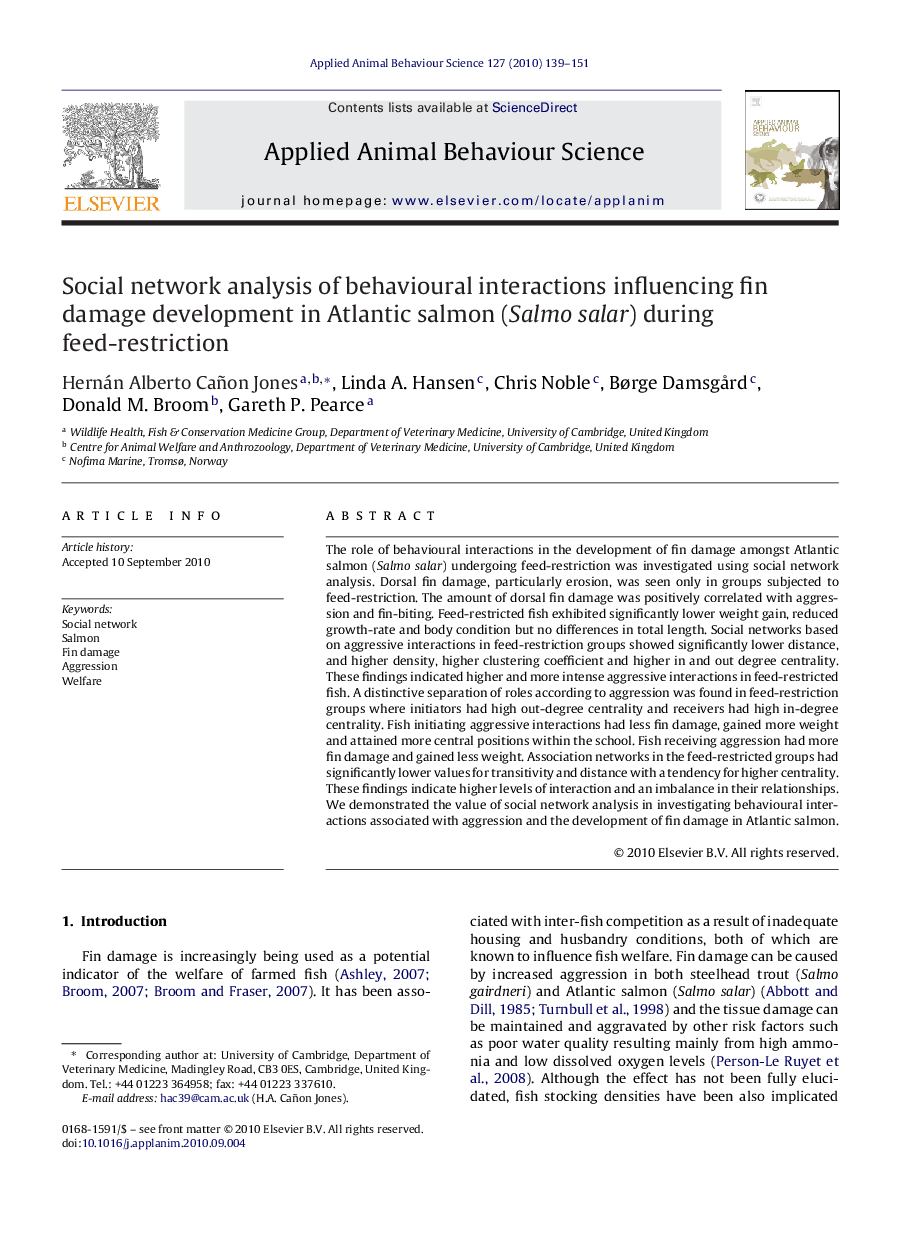| Article ID | Journal | Published Year | Pages | File Type |
|---|---|---|---|---|
| 4523305 | Applied Animal Behaviour Science | 2010 | 13 Pages |
The role of behavioural interactions in the development of fin damage amongst Atlantic salmon (Salmo salar) undergoing feed-restriction was investigated using social network analysis. Dorsal fin damage, particularly erosion, was seen only in groups subjected to feed-restriction. The amount of dorsal fin damage was positively correlated with aggression and fin-biting. Feed-restricted fish exhibited significantly lower weight gain, reduced growth-rate and body condition but no differences in total length. Social networks based on aggressive interactions in feed-restriction groups showed significantly lower distance, and higher density, higher clustering coefficient and higher in and out degree centrality. These findings indicated higher and more intense aggressive interactions in feed-restricted fish. A distinctive separation of roles according to aggression was found in feed-restriction groups where initiators had high out-degree centrality and receivers had high in-degree centrality. Fish initiating aggressive interactions had less fin damage, gained more weight and attained more central positions within the school. Fish receiving aggression had more fin damage and gained less weight. Association networks in the feed-restricted groups had significantly lower values for transitivity and distance with a tendency for higher centrality. These findings indicate higher levels of interaction and an imbalance in their relationships. We demonstrated the value of social network analysis in investigating behavioural interactions associated with aggression and the development of fin damage in Atlantic salmon.
